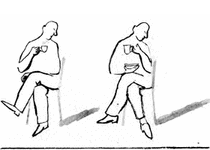- Dla kandydatów
- Dla studentów
- Informacje dla studentów I roku
- Informacje ogólne
- Informator o studiach
- Organizacja roku
- Zarządzenia Prodziekana ds. studenckich
- Kolokwia i egzaminy
- Prace i egzaminy dyplomowe
- Materiały dydaktyczne
- Pracownie
- Pracownia Projektów Studenckich
- Zespołowe projekty studenckie
- Oprogramowanie
- Konta i hasła w sieci studenckiej
- Studia doktoranckie
- Studia podyplomowe
- Samorząd, koła, kluby, chór
- Stypendia i sprawy socjalne
- Oferty pracy
- Dla pracowników
- Dla gości
- Badania
- Rada Naukowa Dyscypliny Nauki Fizyczne
- Kierunki badań
- Priorytetowy Obszar Badawczy II IDUB
- Realizowane projekty
- Sekcja ds. Obsługi Badań
- Seminaria i konwersatoria
- Konwersatorium im.J.Pniewskiego i L.Infelda
- Algebry operatorów i ich zastosowania w fizyce
- Środowiskowe Seminarium Fizyki Atmosfery
- Seminarium Zakładu Biofizyki
- Seminarium z fizyki biologicznej i bioinformatyki
- Seminarium Fizyki Ciała Stałego
- Multimedialne seminarium z ekono- i socjofizyki
- Exact Results in Quantum Theory
- Środowiskowe Seminarium Fotoniczne
- Seminarium Fotoniki
- Seminarium Zakładu Fotoniki
- Seminarium Gamma
- Seminarium "High Energy, Cosmology and Astro-particle physics (HECA)"
- Środowiskowe Seminarium z Informacji i Technologii Kwantowych
- Seminarium Fizyki Jądra Atomowego
- Seminarium fizyki litosfery i planetologii
- Seminarium Fizyki Materii Skondensowanej
- Seminarium "Modeling of Complex Systems"
- Seminarium nauk o widzeniu
- Seminarium "Nieliniowość i Geometria"
- Seminarium Optyczne
- Soft Matter and Complex Systems Seminar
- String Theory Journal Club
- Seminarium Koła Struktur Matematycznych Fizyki
- Seminarium "Teoria cząstek elementarnych i kosmologia"
- Seminarium KMMF "Teoria Dwoistości"
- Seminarium Teorii Względności i Grawitacji
- Seminarium "The Trans-Carpathian Seminar on Geometry & Physics"
- Seminarium Fizyki Wielkich Energii
- Seminarium Fizyki Biomedycznej
- Konferencje
- Publikacje
- Research Highlights
- Optyka na Uniwersytecie Warszawskim
- Wydział
- Misja i strategia
- Władze Wydziału
- Zarządzenia Dziekana
- Zarządzenia Prodziekana ds. studenckich
- Struktura organizacyjna
- Historia Wydziału
- 90 lat Wydziału Fizyki
- 100 lat Wydziału Fizyki
- Fizykoteka – Wirtualne Muzeum Wydziału Fizyki UW
- Dziekanat
- Rada Wydziału
- Jakość kształcenia
- Stopnie i tytuły naukowe
- Nagrody Wydziału Fizyki
- Biblioteka
- Ośrodek Komputerowy
- Pracownicy i doktoranci
- Zamówienia publiczne
- Rezerwacja i wynajem sal
- Oferty pracy
- Osoby
- Zapraszamy
- Media
Seminarium Teorii Oddziaływań Elementarnych
2006/2007 | 2007/2008 | 2008/2009 | 2009/2010 | 2010/2011 | 2011/2012 | 2012/2013 | 2013/2014 | 2014/2015 | 2015/2016 | 2016/2017
2009-06-01 (Poniedziałek)
Debajyoti Choudhury (Delhi University)
New Physics through the Top
2009-05-25 (Poniedziałek)
Peter Zerwas (DESY/ Aachen U.)
Gluinos at LHC: Majorana vs Dirac
2009-05-18 (Poniedziałek)
Jose Espinosa (UA Barcelona) / P. Braun-Munzinger (GSI Darmstadt)
Unexpected physics at the LHC (theory) / Heavy ion physics at the LHC
Piąte spotkanie w ramach Krakowsko-Warszawskich Warsztatów LHC 2009. _____________ Środowisko polskich fizyków oddziaływań elementarnych ma wielką szansę odegrania ważnej roli w programie badawczym LHC. Niżej podpisani zapraszają szerokie grono eksperymentatorów i teoretyków, studentów i doktorantów, wszystkich sympatyków fizyki oddziaływań elementarnych do udziału w tych warsztatach.______________________________________________________________________________________ Po seminarium w godz 15:30 - 16:30 odbędzie się wykład specjalny prof. S. Bethke "Status of the LHC", po którym planowane są krótkie wystąpienia grup krakowskiej i warszawskiej. _______________ _________________________________________ Zapraszamy: Prof. S. Pokorski (UW) i Prof. A. Białas (UJ)
2009-05-11 (Poniedziałek)
Boris Ermolaev (Ioffe Phys. Tech. Inst.))
Total resummation of the leading logarithms of x vs Standard Approach for the Polarized Deep-Inelastic Scattering
Standard Approach (SA) is based on the DGLAP evolution equations and the special fits for the initial parton densities including a large number of phenomenological parameters. SA accounts for the total resummation of logs of Q^2 and lacks the resummation of ln(1/x). In order to be consistent at small x, SA includes the singular factors in the fits. This factors ensure the steep rise (the Regge behavior) of the structure function g_1 at small x and mimic the resummation of ln(1/x). When the resummation is accounted for, the fits can be simplified down to normalization constants. The further advantage of our approach lays in analysis of DIS at small Q^2. Indeed, DGLAP cannot be applied to the region of small Q^2 presently studied by COMPASS collaboration. Contrary to it, our approach works in this kinematics and predicts a very week x-dependence of g_1 even at very small values of x. Instead, it is interesting to study the dependence of g_1 on the invariant energy. Experimental investigation of this dependence would allow one to estimate the ratio between the initial quark and gluon densities. At last, we investigate the infrared properties of g_1 at small. Doing so, we conclude that a part of the power ~1/(Q^2)^k corrections (they are usually attributed to the higher twists impact) in reality has the perturbative origin. We suggest simple formulae for the total resummation of such corrections. The use of can change a lot the conventional impact of the higher twists.
2009-05-04 (Poniedziałek)
Mikolaj Misiak (IFT UW)
Non-perturbative effects in inclusive heavy hadron decays
2009-04-27 (Poniedziałek)
Michele Trapletti (LPT - Orsay & CPHT - Ecole Polytechnique)
Strings and GUTs
We present the state of the art of model building in the context of heterotic string compactifications on orbifolds. We show the details of a specific model having the MSSM chiral spectrum, with SU(5) unification at an energy scale set by the compactification scale. We also show how to link orbifold constructions to smooth manifold compactifications, and why this is crucial in the study of the phenomenological properties of a model.
2009-04-20 (Poniedziałek)
Valeri Khoze (IPPP Durham)
Forward proton tagging at the LHC as a tool to study new physics
2009-04-07 (Wtorek)
Mariano Quiros (Barcelona)
Field theory at finite temperature: part III
UWAGA: trzecia czesc wykladu prof. Quirosa odbedzie sie 7 kwietnia w sali IPJ.
2009-04-06 (Poniedziałek)
Mariano Quiros (Barcelona)
Field theory at finite temperature: part II
2009-04-02 (Czwartek)
Mariano Quiros (Barcelona)
Field theory at finite temperature: part I
This is the first lecture on field theory at finite temperatures, phase transitions and electroweak baryogenesis. The next one will be on Monday April 6, and the last one on Tuesday April 7.
Stron 1 z 3







